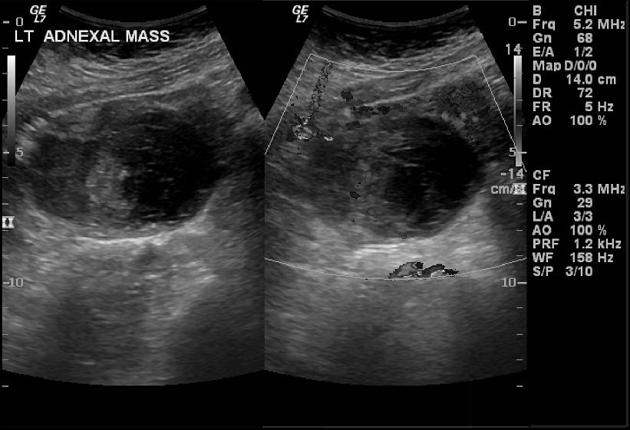
Endometriosis (the presence of the uterine lining outside the uterine cavity) is a common cause of infertility and affects 0.8 – 2% of women of reproductive age. When endometriosis involves the ovary, often a cyst will develop. These cysts are called endometrioma and indicate the presence of severe (Stage IV) endometriosis. 20 – 40% of women with endometriosis develop endometrioma. The pros and cons of surgical removal of endometrioma have been discussed in previous blog posts. The question is, do women with endometrioma have a lower ovarian reserve than women without endometrioma?
This very issue was investigated by a group of investigators from Turkey. Uncu et al. (Prospective assessment of the impact of endometriomas and their removal on ovarian reserve and determinants of the rate of decline in ovarian reserve. Hum Reprod 2013; 28:2140-2145) studied 30 women with endometrioma > 2 cm and 30 age matched healthy women without ovarian cysts (controls). Women with endometrioma underwent laparoscopic removal using a standardized technique. Serum AMH levels and antral follicle count (AFC) were determined prior to surgery, 1 and 6 months after surgery.
The results were interesting. Compared to the controls at baseline, women with endometrioma had lower AMH levels (4.2 ± 2.3 versus 2.8 ± 2.2 ng/mL, respectively, P = 0.02) and AFC (14.7 + 4.1 versus 9.7 + 4.8, respectively, P < 0.01). Serum AMH levels (1.8 ± 1.3 ng/mL) were further decreased 6 months after surgery while the AFC remained unchanged. The rate of decline in AMH was not correlated with age, laterality of endometrioma, or cyst diameter.
This is the first study to show that the presence of endometrioma per se is associated with a decrease in ovarian reserve. Surgical removal of endometrioma negatively affects ovarian reserve. This negative impact is not temporary but sustained over 6 – 9 months. The extent of surgery-related decline in ovarian reserve is not predictable using preoperative or peri-operative factors. Even after surgery, there is a good chance that the endometrioma (s) will recur. The authors therefore suggest that it may be prudent to measure AMH levels prior to surgery and delay/avoid surgical excision as far as is possible if subsequent fertility is a concern.
At InVia Fertility Specialists, we will often pursue pregnancy in patients with endometrioma aggressively. In these patients, simpler techniques such as ovulation induction with clomiphene citrate and timed intra uterine insemination (IUI) have low success rates. Many of these patients will require IVF to get pregnant. Even IVF pregnancy rates in this group of patients will be lower when compared to patients without endometrioma.
IVF InVia Fertility Specialists Diminished ovarian reserve Endometriosis

Entire Website © 2003 - 2020
Karande and Associates d/b/a InVia
Fertility Specialists
